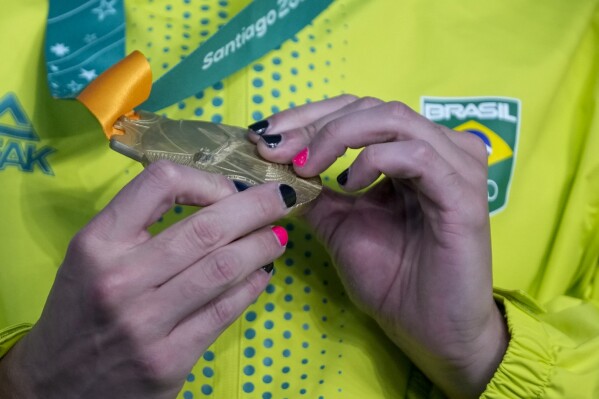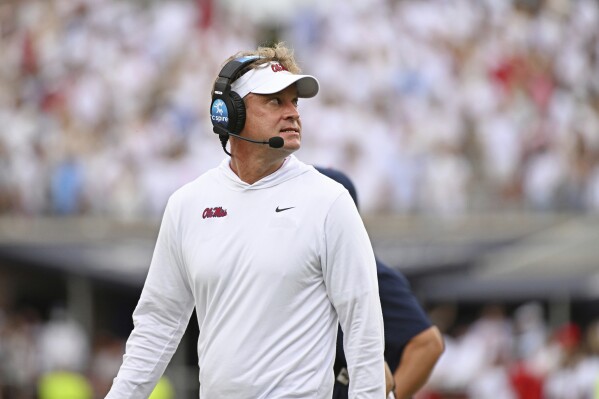NCAA survey of 23,000 student-athletes shows mental health concerns have lessened post-pandemic
INDIANAPOLIS (AP) — An NCAA survey of student-athletes suggests they are experiencing fewer mental health concerns than they did at the height of the COVID-19 pandemic, but some demographics have shown more improvement than others.
More than 23,000 student-athletes participated in the NCAA Student-Athlete Health and Wellness Study between September 2022 and June 2023. The data shows that mental health concerns have decreased in all three NCAA divisions.
In men’s sports, 17% of respondents said they constantly feel overwhelmed, down from 25%, and 16% reported feelings of mental exhaustion, down from 22%. The most significant decreases came among males in Division I.
The decreases were smaller among women. It found that 44% of women’s sports participants reported feeling overwhelmed (down from 47%), and 35% reported feeling mentally exhausted (down from 38%).



As studies in 2020 and 2021 showed, students of color, those identifying on the queer spectrum and those identifying as transgender or nonbinary once again self-reported mental health struggles at higher rates.
“As schools continue to improve their mental health care services while fostering an environment of well-being, student-athletes will continue to reap the benefits of wellness and mental health care seeking,” said Brian Hainline, the NCAA chief medical officer. “That being said, we need to understand better the gap in perceived mental health concerns between men and women student-athletes.”
The leading cause of mental health concerns is academics-related, the survey showed, while planning for the future, financial worries, playing time and family worries were also key factors negatively impacting their mental health.
Other findings: 40% of women’s sports participants and 54% of men’s sports participants said they would feel comfortable talking with their coach about mental health concerns, a decrease of nine percentage points for women and eight for men.
Nearly 70% of all student-athletes reported having people on campus they can trust to provide support when needed, although only about 50% reported feeling comfortable seeking support from a licensed mental health provider on campus.
The full study will be released next month at the 2024 NCAA convention in Phoenix.
Overall, student-athletes identified the areas of proper nutrition, mental wellness, getting proper sleep, weight management and body image as topics that coaches and administrators should spend more time discussing with their student-athletes.
___
AP sports: https://apnews.com/sports
Disclaimer: The copyright of this article belongs to the original author. Reposting this article is solely for the purpose of information dissemination and does not constitute any investment advice. If there is any infringement, please contact us immediately. We will make corrections or deletions as necessary. Thank you.




